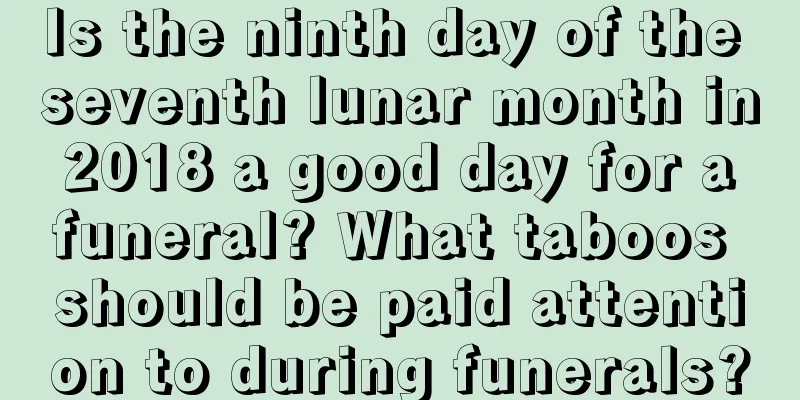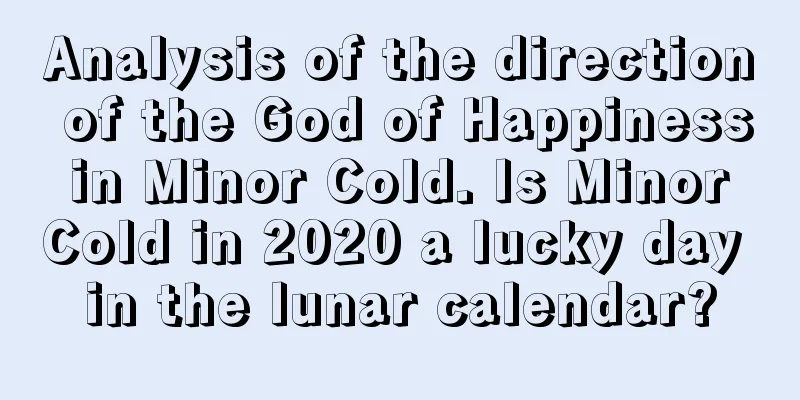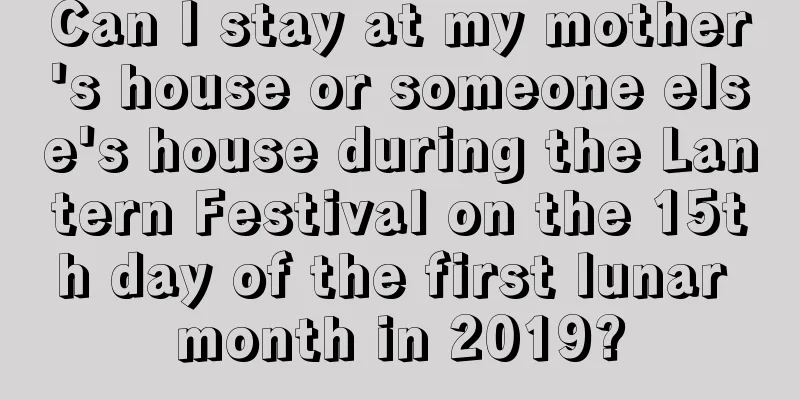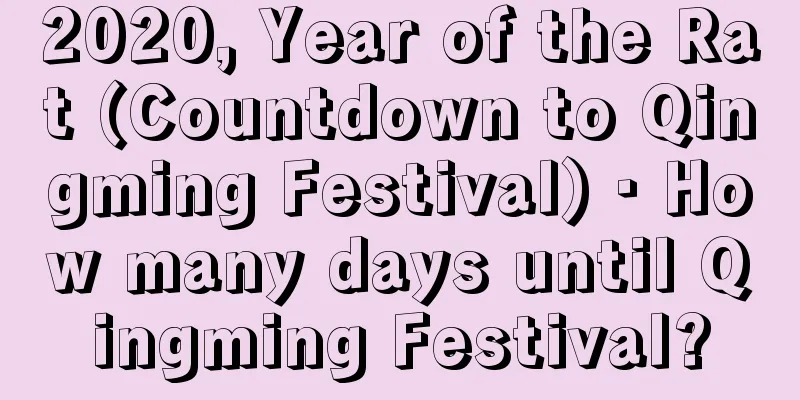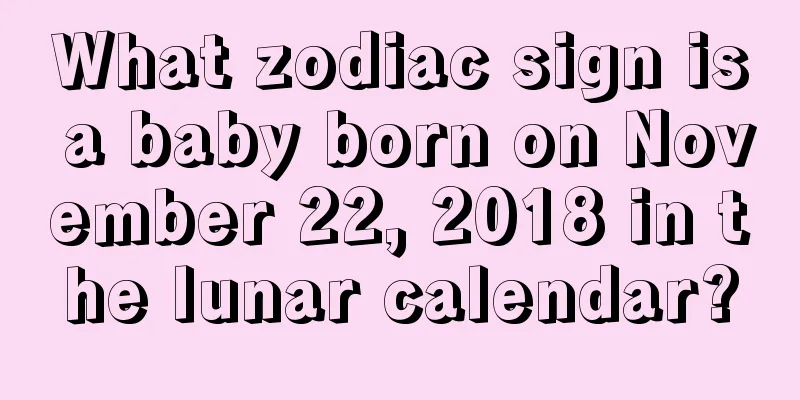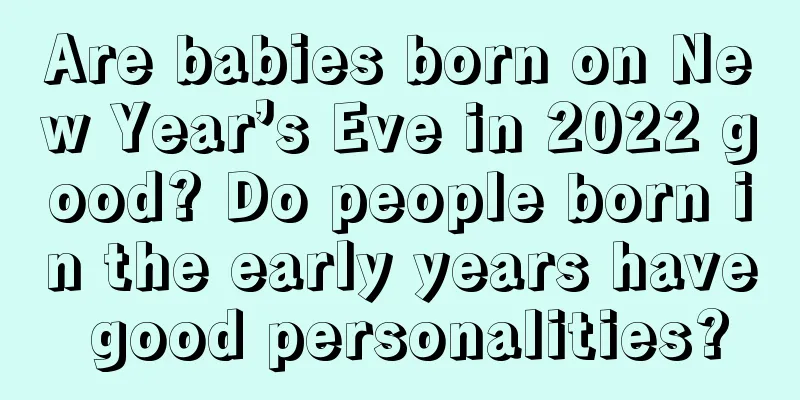Introduction to the origin of Qingming Festival. Do you know the cultural connotation of Qingming Festival?
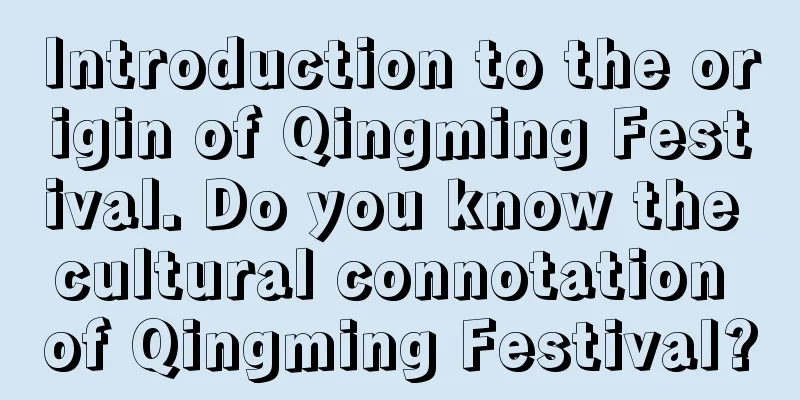
Although everyone knows about Qingming Festival, not everyone knows its origin. Let’s take a look at the origin of Qingming Festival. The second month of the lunar calendar has 29 days and is also a month full of spring. To know the predicted lunar calendar events, please check out the special topic of February 2021 on Shuimoxiansheng.com!The Origin of Qingming FestivalQingming Festival is the most solemn and grand festival for ancestor worship of the Chinese nation. It is a cultural traditional festival for respecting ancestors, remembering the dead and promoting filial piety. Qingming Festival has a long history. It originated from the spring sacrificial activities in ancient times. The spring and autumn sacrifices have existed since ancient times. Ancestor worship and sacrificial culture are important factors in the formation of Qingming Festival. Qingming has the connotations of both a solar term and a festival. The time and meteorological and phenological characteristics of the Qingming solar term provide important conditions for the formation of Qingming festival customs.The Qingming solar term is one of the 24 specific solar terms in the ancient Ganzhi calendar that represents seasonal changes. It is a time when vitality is abundant, but also a time when yin energy is declining. During the Qingming Festival, the old is exchanged for the new, vitality begins to flourish, the temperature rises, all things are clean, and the earth presents an image of spring and brightness. This season is a good time for outings in the suburbs (spring tours) and tomb-sweeping rituals (tomb-worshipping rituals). The Qingming Festival integrates the solar term with folk customs, and is a combination of the right time, the right place, and the right people. Do you know about the cultural connotation of Qingming Festival?Qingming Festival is the most solemn and grand festival for ancestor worship of the Chinese nation. It is a traditional cultural festival for honoring ancestors and remembering the dead. The Qingming Festival embodies the national spirit, inherits the sacrificial culture of Chinese civilization, and expresses people's moral sentiments of respecting their ancestors and carrying on their wills. Tomb sweeping is also called "tomb sacrifice", which is called "timely respect" for ancestors. The two sacrifices in spring and autumn have existed since ancient times. Qingming Festival has a long history and originated from ancestor worship and spring sacrificial customs in ancient times. According to the research results of modern anthropology and archaeology, the two most primitive beliefs of human beings are belief in heaven and earth, and belief in ancestors. According to archaeological excavations, a tomb dating back 10,000 years was discovered at the Qingtang site in Yingde, Guangdong. It is the earliest tomb in China with a confirmed burial style, indicating that ancient ancestors had clear and conscious burial behaviors and ritual concepts 10,000 years ago. The custom of "tomb sacrifice" has a long historical origin. The Qingming "tomb sacrifice" is a synthesis and sublimation of traditional spring customs. The formulation of the ancient Ganzhi calendar provided the prerequisite for the formation of the festival. Ancestor belief and sacrificial culture are important factors in the formation of the Qingming ancestor worship customs. The Qingming Festival has rich customs, which can be summarized into two major festival traditions: one is to honor ancestors and remember the dead; the other is to go on outings and get close to nature. The Qingming Festival not only has the themes of tomb sweeping, remembrance and memorializing, but also has the themes of outing and refreshing the body and mind. The traditional concept of "harmony between man and nature" is vividly reflected in the Qingming Festival. Through historical development, Qingming Festival in the Tang and Song dynasties integrated the customs of Cold Food Festival and Shangsi Festival, blending various folk customs from many places into one, and has extremely rich cultural connotations. |
Recommend
Is December 27th of the lunar calendar in 2018 a suitable date for opening a new store?
It is the twelfth month of the lunar calendar in ...
Is it a good idea to get engaged during the Jingzhe period in 2019? What are the customs of Jingzhe?
Is it a good idea to get engaged during the Jingzh...
Do people born on the eleventh day of the first lunar month have a strong life?
Do people born on the eleventh day of the first lu...
Can we offer sacrifices one day after the Double Ninth Festival on the tenth day of the ninth lunar month in 2020?
Can we offer sacrifices one day after the Double N...
Is the fifth day of the seventh lunar month in 2019 a suitable day to pick up a new car?
Every day is different, not every day is suitable...
Is the Dragon Raising Festival in the second month of the lunar calendar? What other festivals are there in the second month of the lunar calendar?
The Dragon Raising its Head Festival is a traditio...
Will a girl born on the third day of the third lunar month in 2020 have a smooth and auspicious fate?
Destiny represents a person's fate and luck. F...
What are the do's and don'ts on the 25th day of the seventh lunar month in 2017?
What day is July 25th in the lunar calendar 2017?...
How many days will it take for the Dragon to raise its head in 2021? Introduction to the festival customs of Dragon Raising its Head
Many people have heard of the day when the Dragon ...
Can I sign the contract on the ninth day of the eleventh lunar month in 2021?
Every day is good and bad, so let’s take a look at...
Feng Shui analyzes several important principles to follow in architectural Feng Shui!
Introduction: Feng Shui is a widely used academic...
A complete list of special Feng Shui layouts for different types of events in 2020!
We know that the feng shui and directions correspo...
Query the auspicious and unlucky time of the 14th hour of September 2017, and the auspicious and unlucky time of the 14th hour
We have quietly stepped into a season full of har...
Is it good for a baby girl born on the tenth day of the fifth lunar month in 2018?
Destiny is something invisible and intangible. Bab...
When are the Lantern Festival and the Ghost Festival in 2021? What is the difference between Zhongyuan Festival and Shangyuan Festival?
The Sanyuan Festival is the collective name for th...
